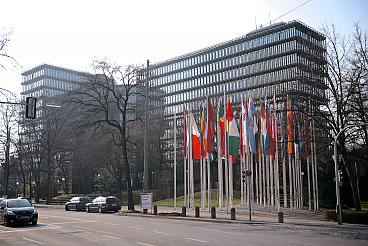Disquiet at the European Patents Office
Disquiet at the European Patents Office

There may well be long periods in which you give no thought whatsoever to the European Patents Office, the EPO, but it’s nevertheless worth keeping an eye on the news concerning this organisation. The officials who work there are up in arms, the target of their protests being the dictatorial administration of EPO director Benoit Battistelli. I will shortly be speaking with the personnel. The EPO isn’t an EU institution, but the EU wants to involve it in the creation of a new kind of European patent. In this, there must not in any circumstances be any flouting of workers' rights, or the stench of cronyism in appointments and dismissals.
Just like their colleagues in Brussels, EPO officials are paid immensely high salaries. Moreover, these are not related to performance, but to seniority. Battistelli wants to force down costs, partly because the patents approved by his organisation are expensive. For this reason, he wants to get rid of a number of privileges enjoyed by his staff. One can agree with that without this meaning that it’s okay to remove the right of the personnel to have their say and to fair, independent appeal procedures, let alone to introduce a culture of intimidation. And that is precisely what, according to the EPO officials’ union, Battistelli is doing.
Because the EPO is an independent international organisation, conditions of service are governed by the rules of the body itself. There is for example an office in the Netherlands, in Rijswijk, but Dutch labour law does not apply to its employees. Generally speaking, international organisations can be relied on to look at the conditions applied to comparable national officials when it comes to the right to organise a union, to communicate with each other regarding their labour rights and, should one be accused of transgressing internal regulations, to appeal to an independent commission. None of this is the case at the EPO.
All of these rights are, the staff say, being abolished, either wholly or in part. The union is forbidden to be active within the EPO buildings and the existing staff council has been abolished. An internal enquiry has been established which often operates in an intimidating manner, and people are encouraged to tittle-tattle on their colleagues, should they express critical views. There are, moreover, questions regarding the integrity of Battistelli’s right hand man, the Croatian Željko Topić, accused in his own country of corruption, despite which his appointment was pushed through by Battistelli.
The participating countries, which include the Netherlands, have the last word when it comes to the EPO. Recently, however, Battistelli was reappointed for a period of four years. Evidently, protests from these countries weren’t taken seriously. This is primarily a matter for our national Parliament, but, due to the indirect involvement of the EU, also concerns the European Parliament. The officials with whom I have contact wish to remain anonymous, fearing reprisals. Their case must, however, be heard in Brussels. This would seem to me a better reaction than that of the EP Petitions Committee, which referred a complaint from the officials’ union back to the EPO’s internal appeals commission, despite the fact that the complaints included the allegation that this commission was no longer able to operate independently, but was being kept under tabs by Battistelli. In my view we need to get to the bottom of this: trade union rights should apply to everyone, even officials, and even the highly paid.
- See also:
- Dennis de Jong
